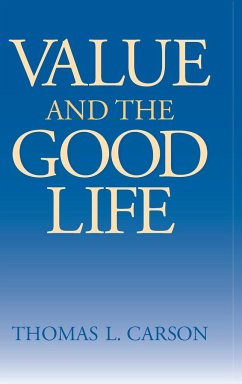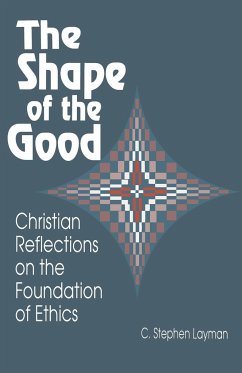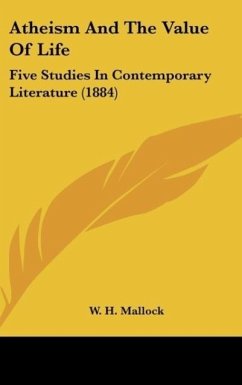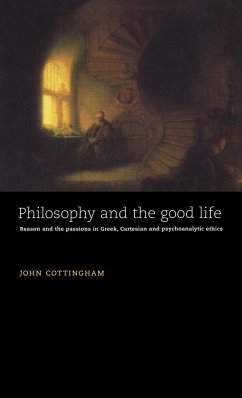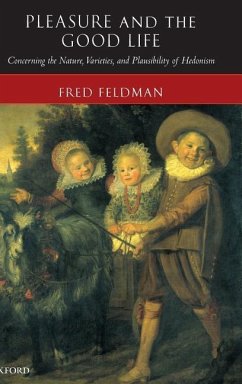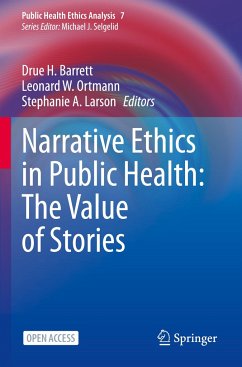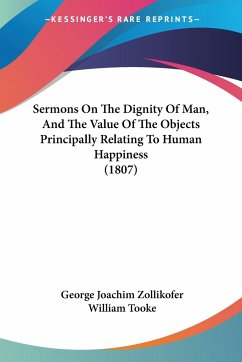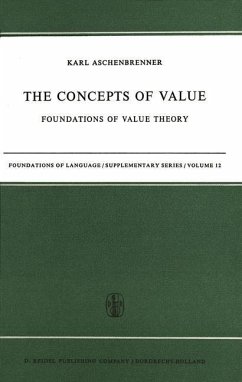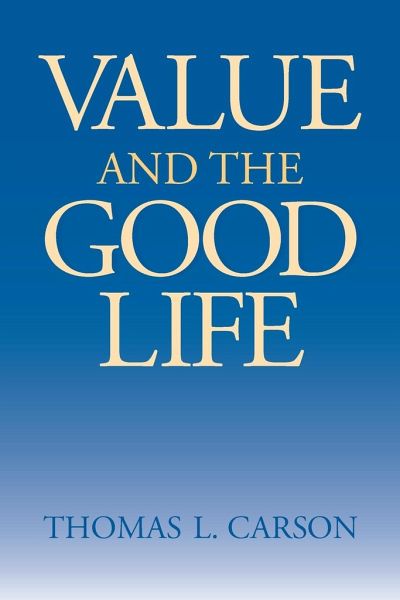
Value and the Good Life

PAYBACK Punkte
17 °P sammeln!
For as long as humans have pondered philosophical issues, they have contemplated "the good life." Yet most suggestions about how to live a good life rest on assumptions about what the good life actually is. Thomas Carson here confronts that question from a fresh perspective. Surveying the history of philosophy, he addresses first-order questions about what is good and bad as well as metaethical questions concerning value judgments. Carson considers a number of established viewpoints concerning the good life. He offers a new critique of Mill's and Sidgwick's classic arguments for the hedonistic...
For as long as humans have pondered philosophical issues, they have contemplated "the good life." Yet most suggestions about how to live a good life rest on assumptions about what the good life actually is. Thomas Carson here confronts that question from a fresh perspective. Surveying the history of philosophy, he addresses first-order questions about what is good and bad as well as metaethical questions concerning value judgments. Carson considers a number of established viewpoints concerning the good life. He offers a new critique of Mill's and Sidgwick's classic arguments for the hedonistic theory of value, employing thought experiments that invite us to clarify our preferences by choosing between different kinds of lives. He also assesses the desire- or preference-satisfaction theory of value in detail and takes a fresh look at both Nietzsche's Übermensch ideal and Aristotle's theory of the good life. In exploring foundational questions, Carson observes that many established theories rest on undefended assumptions about the truth of moral realism. Arguing against this stand, he defends the view that "good" means "desirable" and presents a divine-preference version of the desire-satisfaction theory. In this he contends that, if there exists a kind and omniscient God who created the universe, then what is good or bad is determined by His preferences; if such a God does not exist, what is good or bad depends on what we as rational humans desire. Value and the Good Life is the only book that defends a divine-preference theory of value as opposed to a divine-command theory of right and wrong. It offers a masterfully constructed argument to an age-old question and will stimulate all who seek to know what the good life truly is.





